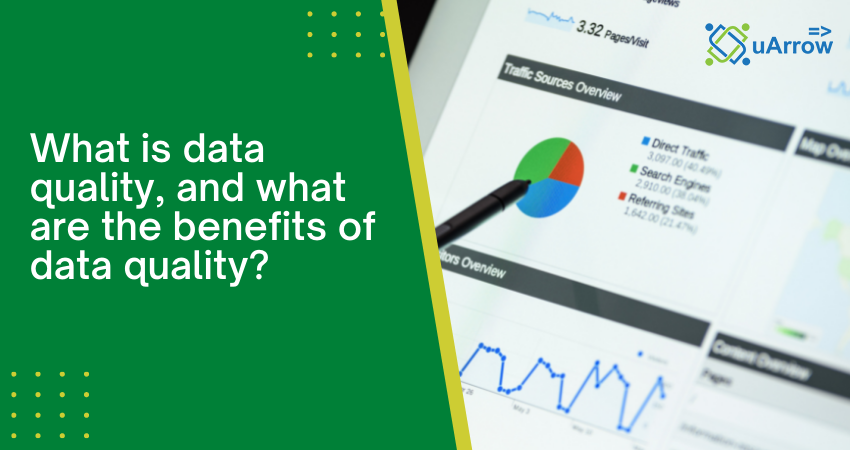If you have been in business for a while, you will understand the importance of data. Here we will bring to light the importance of data quality and the benefits. Along with this, we will also provide added information on how you can use quality data to grow your business.
What is data quality?
Data quality cannot be defined in a word, but instead, it can be defined with a few. Data quality cannot be defined by a few defining words that contribute to its quality. Data quality is the contributing factor that adds value to the various ways data is used.
On the contrary, using data that lacks quality would lead to tarnished results and cause more damage than you think. Decisions that are made based on inaccurate data have severe long-term damage. This allows you to understand that the data comes with solid significance.

What are the defining factors of data quality?
1) Accuracy
Data quality can be defined based on the accuracy of the content. Since data is the deciding factor in making decisions, its predictability and analysis have to be on point. Manipulating data will have a ripple effect of damage on the areas where decisions have been made based on the data provided.
2) Validity
Data quality can be defined by how the data was collected rather than the actual data itself. It should be placed appropriately for it to be properly understood, and it should also be placed in the correct range. If the data doesn’t fall within these categories, then the data quality should be questioned. The source is of high importance.
3) Relevance
Data quality can be defined based on relevance. Adding irrelevant information as a part of the data adds more information but lacks accuracy. The challenge is when the data has been added in the same area but does not suit the goal and seems irrelevant; then the data is of no use.
What are the benefits of data quality?
1) Decision-making
Quality data goes beyond the facts of accuracy and relevance. Instead, it adds confidence to the decision-maker that decisions are not being made on hunches and impulses. Instead, decisions are made based on proper physical, calculated, and analyzed data.
2) Make direct targets
The information doesn’t need to be indirect and misleading with quality data. It can be used to make direct targets in specific areas. This contributes by adding focus and making better predictions and judgments.
3) The right marketing strategies
With quality data, a plan of action can be put into place for growth and development. Marketing strategies can be implemented based on the data provided. This will result in positive results in predicted growth and development.
4) Less time spent reconciling data
When it comes to data quality, it is a time saver. Since data quality is reliable and accurate, it eliminates the entire process of reconciling data. Of course, the data has to be checked, but it can shorten the length of the process in validating data with the source.
5) Greater confidence in analytical systems
As data quality is derived from maintaining accuracy and relevance, there is a low possibility of errors existing in the data. When quality data is produced, it results in confidence in making decisions because of the confidence in the system. Therefore, quality data leads to quality decisions.
Conclusion
In this article, we have answered what data quality is and the benefits of data quality. It has been defined in more than a few words, such as accuracy, validity, and relevance. Along with that, the benefits of data quality have been discussed. It helps to make better decisions, set direct targets, and take quick action.
Understanding data alone cannot be of any use, but the data being used should be of good quality and designed to serve the purpose of assisting in running businesses. Stay with us for more content about data, as we know that data is the future.
